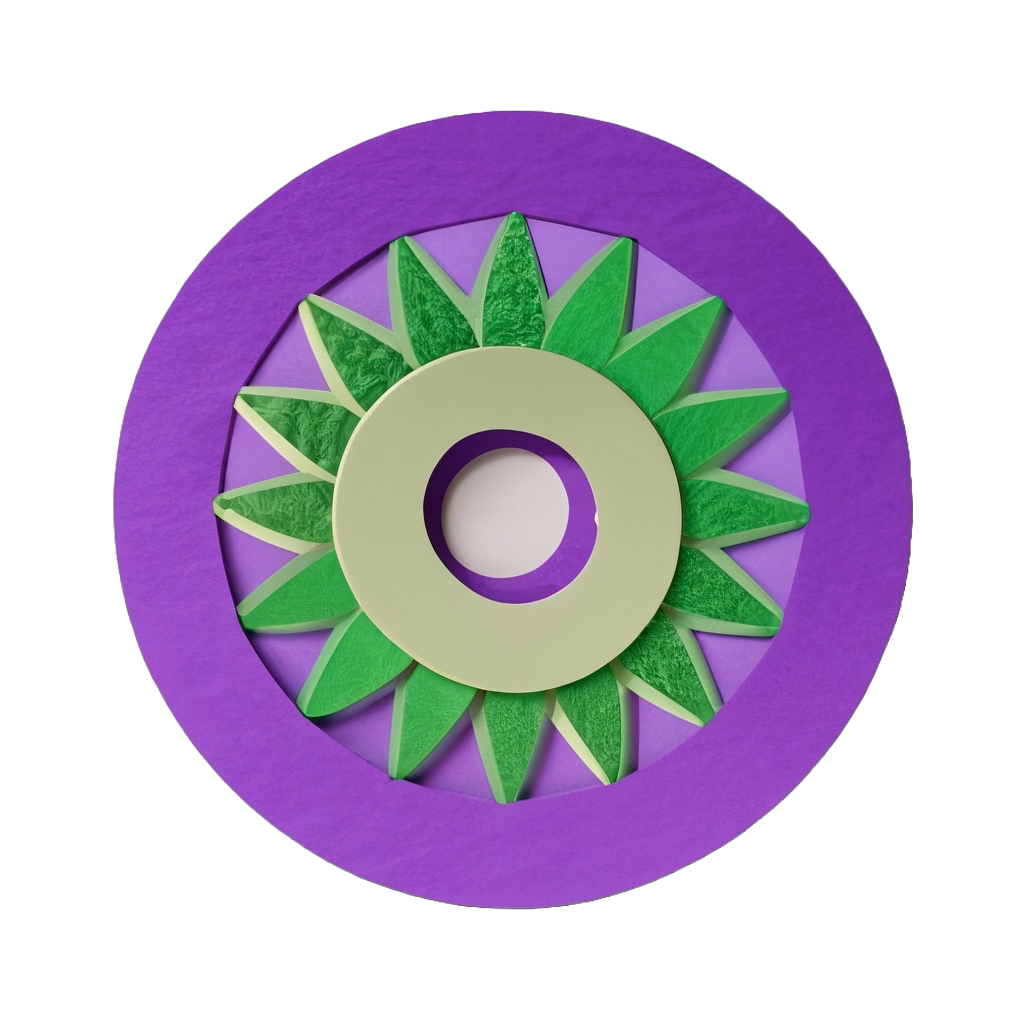Nurturing Your Wellbeing. Essential Steps for Recovery from Surgery, Injury, or Trauma: My Journey following a Total Hip Replacement
Simone Sear • March 27, 2024
Reflections and tips to look after your wellbeing following surgery, injury, illness or trauma.

Introduction:
At 56 I’m considered ‘young’ for a hip replacement. I was diagnosed with bilateral osteoarthritis in the hips which I learnt was due to having had hip dysplasia as a baby. My right hip was the worst and with hindsight had never worked quite the same way as my left hip. Over a 5-year period the pain, stiffness and discomfort had become unbearable and was having a significant impact on my life and overall wellbeing. I’d tried injections but was told these were no longer a viable option and needed a total hip replacement.
I prepared well physically for surgery, but my mental and emotional recovery has been more challenging. I’m now three weeks post-surgery. During this time, I’ve reflected, tried different techniques and delved into the link between physical and emotional pain.
These are my personal reflections, thoughts and techniques that have worked for me. It’s important to acknowledge that we are all different in how we recover. I hope my experiences will give reassurance and motivation to others going through something similar.
Recovery from surgery, injury, illness or trauma goes beyond the physical healing process; it's about nurturing your overall wellbeing. While medical interventions play a crucial role, self-care practices and support systems are equally important for a successful recovery journey. In this blog post, I explore some essential steps to prioritise wellbeing during recovery and ensure a smoother path to healing.
1. Prioritise Rest and Relaxation:
Rest is fundamental to the healing process. Whether recovering from surgery, injury, illness or trauma, giving your body ample time to rest allows it to focus its energy on repairing and rebuilding. Our default can be to rush and try to return to work or daily tasks too soon. In doing so we can push our bodies before they’re ready. Good rest and relaxation are essential and if your doctor signs you off for 6 weeks, then they’re usually right! In the past I have been guilty of prioritising work over recovery and have learnt the hard way.
I understand that taking the time you need can cause additional stress, from peer pressure and work pressure as well as financial worries. If that’s the case then try to reach out for professional advice, guidance and support. Organisations like Citizens Advice
can usually provide advice and signposting in these circumstances.
Sleep can also be tough during recovery due to pain and discomfort but try to ensure you're getting enough. If you can’t sleep at night then try taking short breaks throughout the day to snooze, relax and recharge. I found Incorporating relaxation techniques such as deep breathing and meditation helpful, this can ease stress and promote healing. There are lots of guided meditations available that are free to listen to on YouTube, some specifically targeted at healing and coping with pain. You can find more information to help with sleep at The Sleep Charity.
2. Nourish Your Body with Nutrient-Rich Foods:
Proper nutrition plays a key role in recovery. We need more calories than usual for our bodies to heal. Fuel your body with nutrient-rich foods that support healing and boost your immune system. Focus on incorporating plenty of fruits, vegetables, lean proteins, whole grains, and healthy fats into your diet. Stay hydrated by drinking plenty of water throughout the day, and try to limit consumption of processed foods, sugary snacks, and caffeine, which can hinder recovery. I had cravings for certain foods and my appetite increased during these first few weeks. I have tried not to worry knowing there’s time for diets and exercise later.
3. Stay Active within Your Limits:
While rest is crucial, gentle movement can also aid in the recovery process. Depending on your condition and medical advice, engage in light activities such as walking, stretching, or low-impact exercises that won't exacerbate your injury or condition. Physiotherapists will often be involved and it’s important to listen to their advice, read anything they send you and try to follow their instructions.
In my own recovery, sticking to my rehabilitation exercises and slowly increasing these each day has helped ease my pain and boosted my confidence. It’s important to listen to your body and gradually increase activity levels as advised. Your body will let you know if you overdo things so trust in the process. Overall, gentle physical activity has helped my circulation, reduced stiffness, and had a positive effect on my mood and overall wellbeing.
4. Seek Emotional Support:
Recovery can, and for me has been, emotionally challenging. I was very tearful during the first week post-surgery. It’s common and can also be a side effect of anaesthesia. It’s essential to have a strong support system in place. I’ve leant on friends, family members, and joined an online support group for emotional support and encouragement. Reading about and connecting with others in a similar situation has been hugely reassuring and motivating. Don't hesitate to communicate your needs and feelings with your loved ones or seek professional help from your GP, a therapist or counsellor if necessary. Sharing your experiences and feelings can alleviate stress and foster a sense of connection and resilience.
5. Practice Self-Compassion and Patience:
Recovery is a journey, and it's important to be patient and kind to yourself throughout the process. There were times, particularly during the first 10 days when I noticed myself having lots of negative thoughts and wondering if I would ever recover, wondering why I had opted for surgery and even grieving for my old hip joint back! However, connecting with others in an online forum has been and hugely reassuring as I learnt that it wasn’t only me feeling this way. Try to accept any setbacks and challenges as they arise and view them as opportunities for growth and learning. They do pass and things do usually get better. Practice lots of self-compassion by acknowledging your efforts and progress, no matter how small. Celebrate milestones along the way and remember that healing takes time. Be gentle with yourself and trust in your body's innate ability to heal.
6. Don’t Compare!
Your recovery will be different to mine and my recovery has been different to other people’s. My error was listening too much to other people’s accounts of how amazing it had been for them. Some people recounted how they had been ‘running around’ by the second day. Of course, this raised false expectations for me and left me feeling as though something was wrong. So much will depend on a range of factors such as your health pre-surgery, your age, the type of surgery, injury, illness you have, your own pain threshold etc. It’s always best to take advice from the medical professionals about what is within the ‘normal’ boundaries and expectations. So, try not to compare your situation with someone else’s as we are all so very different.
Conclusion:
Recovery from surgery, injury, or trauma requires a holistic approach that encompasses physical, emotional, and mental wellbeing. By prioritising rest, nutrition, gentle movement, emotional support, and self-compassion, you can facilitate a smoother recovery journey and emerge stronger and more resilient than before. Remember to listen to your body, reach out for and accept help, honour your needs, and trust in the healing process. You are deserving of care, support, and wellbeing every step of the way.
At 3 weeks post-op I’ve a way to go but I know I’ve turned a corner and can already feel the benefits of my new hip joint. The old osteoarthritis pain has gone, I can stand taller and straighter and am looking forwards to a full recovery. I’m feeling incredibly grateful, especially to our wonderful NHS and to our amazing bodies and their ability to heal. Be kind to yourself if you’re going through a similar experience and reach out if you’re struggling.
As a health and wellbeing coach my mission is to use my experience, skills and knowledge to help others and to prioritise my own health and wellbeing to ensure I’m fit enough to do this. My aim in writing is to be authentic and share my own learning and reflections to help others in similar situations.
Please note I am not a medical professional or clinician and as such I do not provide medical advice or aim to diagnose or provide methods of curing illness or injury. Instead, my aim is to provide general information regarding improving wellbeing and self-awareness. This blog post is not intended to be used as an alternative to medical advice from a doctor or other professional healthcare provider. professional medical advice. Please consult your doctor or healthcare provider if you’re struggling and need medical intervention.
If you’d like to know how health and wellbeing coaching can help and support your recovery journey then please don’t hesitate to contact me for a free, no obligation chat:
simone@simonesearcoach.co.uk

By Simone Sear
•
March 19, 2025
Happier Together: Why Connection is Key to Our Wellbeing March 20th marks the International Day of Happiness, and this year’s theme — Happier Together — feels more important than ever. In a world facing uncertainty and division, this theme reminds us that meaningful, lasting happiness comes from feeling connected to others and being part of something bigger than ourselves. But did you know that meaningful connections aren’t just good for the soul — they’re vital for our physical and mental health too? Let’s explore why connection is so powerful and how you can build stronger bonds to boost your wellbeing. The Power of Connection for Wellbeing. Research shows that positive social connections are among the most significant contributors to overall wellbeing. Here’s how being 'Happier Together' can improve your health: Reduces Stress : Spending time with supportive friends and family helps to lower cortisol levels, the hormone linked to stress. Boosts Mental Health : Strong relationships provide a sense of belonging, reducing feelings of loneliness and anxiety. Improves Physical Health : Studies have linked social connections to lower blood pressure, improved immunity, and even a longer lifespan. Enhances Resilience : Knowing you have people to turn to during tough times can help you cope better with life’s challenges. Key Findings from the World Happiness Report 2025 Highlighting the Importance of Connection: • Kindness and Trust: Happiness is strongly linked to kindness, trust, and social connections. • Prosocial Behaviour : People underestimate the kindness of their communities — lost wallets are returned at rates twice as high as expected. • Sharing Meals : Dining with others is as crucial for wellbeing as income and employment. However, solo dining in the U.S. has risen by 53% since 2003. • Living Arrangements : Living alone often reduces happiness, especially in Latin America and Western Europe, while households of around four people report higher wellbeing. • Young Adults’ Social Connection : In 2023, 19% of young adults worldwide reported having no one to rely on — a 39% increase since 2006. • Supporting Others: Acts of kindness like donating, volunteering, and helping strangers are linked to fewer “deaths of despair” in most countries. • Trust and Politics: Declining social trust in Europe and the U.S. has contributed significantly to political polarisation. • Effective Giving : Supporting highly cost-effective charities can increase happiness far more efficiently, maximizing positive impact per donation. (Source: World Happiness Report, 2025 ) 3 Ways to Embrace the ‘Happier Together’ Theme. Here are some simple yet powerful ways to nurture connections and spread joy this International Day of Happiness: 1. Reach Out and Reconnect : Take a moment to send a message, make a call, or arrange to meet up with someone you haven’t spoken to in a while. Meaningful conversations can reignite bonds and bring unexpected joy. 2. Practice Kindness: Small acts of kindness — like giving a compliment, offering support, or volunteering — create positive connections that benefit both you and others. 3. Join a Community : Whether it’s a fitness class, a book club, or a local group, connecting with like-minded people gives you a sense of purpose and belonging. Carrying the Torch of Happiness Forward. This International Day of Happiness, let’s remember that joy comes from the connections we build. By reaching out, giving back, and embracing community, we can create a ripple effect of positivity — not just today, but every day. What’s one small step you can take today to feel Happier Together? Contact me for a chat about supporting you on your health and wellbeing journey: simone@simonesearcoach.co.uk #HappierTogether #InternationalDayOfHappiness #WellbeingJourney

By Simone Sear
•
February 13, 2025
Valentine’s Day often focuses on romantic relationships, but it’s also a perfect time to reflect on the relationship you have with yourself. In health and wellbeing conversations, the terms ‘self-love’ and ‘self-care’ are often used interchangeably, but they’re not the same. Both are vital for your overall wellbeing, yet they serve different purposes. In this blog, I explore the differences between self-love and self-care and how you can practice both to create a healthier, more balanced life. What Is Self-Love? Self-love is a mindset and a relationship with yourself. It’s about how you see, treat, and value yourself on a deeper level. Core Elements of Self-Love: • Self-Acceptance: Embracing all parts of yourself, even your imperfections. • Self-Compassion: Treating yourself with kindness, especially when things go wrong. • Self-Respect: Setting boundaries and honouring your needs. • Self-Worth: Knowing that you are inherently valuable and worthy of love. Self-love is about developing an unshakable belief that you are enough, just as you are. It’s an internal process of nurturing your emotional and mental wellbeing, regardless of external circumstances. Examples of Self-Love: • Forgiving yourself for past mistakes. • Saying “no” without guilt when something doesn’t align with your needs or values. • Celebrating your progress and achievements instead of constantly seeking perfection. Self-love is an overarching philosophy and mindset, influencing all the decisions and actions you take in life. What Is Self-Care? Self-care, on the other hand, is a set of actions that you take to care for your mind, body, and spirit. It’s the practice of meeting your needs through intentional behaviours. Core Elements of Self-Care: • Physical Care: Eating nourishing foods, staying hydrated, exercising, and resting. • Emotional Care: Journaling, talking to a therapist, or spending time with loved ones. • Mental Care: Engaging in hobbies, practicing mindfulness, or learning new skills. • Spiritual Care: Meditation, spending time in nature, or reflecting on life’s purpose. While self-love is about how you feel about yourself, self-care is how you demonstrate that love through actions. It’s the practical expression of your self-love in everyday life. Examples of Self-Care: • Scheduling regular breaks to avoid burnout. • Prioritising sleep to restore your energy. • Saying no to overcommitting and giving yourself downtime. Key Differences Between Self-Love and Self-Care Self-Love: Mindset and relationship with yourself Internal and emotional focus Rooted in self acceptance and worth Long term process Self-Care: Actions and behaviours to meet your needs Practical and often external actions Rooted in self-maintenance and balance Day-to-day habits In short, self-love is the why , and self-care is the how . Self-love provides the foundation for why you take care of yourself, and self-care is the physical manifestation of that love. How Self-Love and Self-Care Work Together Imagine self-love as planting a seed and self-care as the water and sunlight that allow it to grow. Without self-love, self-care can become superficial or feel like just another item on your to-do list. Without self-care, self-love remains a nice idea but doesn’t translate into real improvements in your well-being. For example: • If you love and respect yourself (self-love), you’re more likely to say no to toxic relationships or overwork and set boundaries (self-care). • If you’re practicing regular self-care, like resting or taking time to decompress, you reinforce the belief that you are deserving of care (self-love). Tips to Cultivate Both Self-Love and Self-Care 1. Start with Self-Awareness To build self-love, take time to reflect on how you view and treat yourself. Do you speak kindly to yourself? Do you honour your needs? Practice: Spend 5 minutes a day writing down self-reflections, including moments when you felt proud of yourself or times when you were kind to yourself. 2. Schedule Non-Negotiable Self-Care Time Block time for self-care activities just as you would any important appointment. Whether it’s a workout, meal prep, or journaling, treat this time as sacred. Tip: Make a list of self-care activities that nourish different aspects of your well-being (physical, emotional, mental, spiritual) and rotate through them regularly. 3. Practice Boundaries as a Form of Self-Love Boundaries are a powerful way to protect your energy and wellbeing. Exercise: Identify one boundary you need to set - whether it’s limiting work hours, saying no to social plans, or creating tech-free time. Communicate and enforce this boundary without guilt. 4. Speak to Yourself with Compassion When negative self-talk arises, challenge it with compassion. Example: Instead of thinking, “I can’t believe I messed up again,” try, “It’s okay to make mistakes. I’m learning and growing.” 5. Align Your Actions with Your Values Make sure your self-care practices are aligned with your personal values and what truly matters to you. Avoid practices that feel performative or driven by societal pressure. Tip: If a self-care activity feels like a chore, re-evaluate whether it’s serving you or simply adding stress. Choose what brings genuine peace and joy. Embrace Both for a Balanced Life Self-love and self-care are not one-time fixes – they’re lifelong practices. Self-love lays the foundation by helping you see your worth and treat yourself with kindness. Self-care is how you honour that worth through daily habits and routines. Together, they create a powerful cycle that promotes wellbeing and fulfilment. This Valentine’s Day, instead of focusing solely on others, take time to reflect on how you can better love and care for yourself. Whether it’s setting a new boundary, taking a mindful moment, or simply speaking kindly to yourself, each small step helps strengthen your relationship with yourself. You are worthy of love—especially your own. 💖
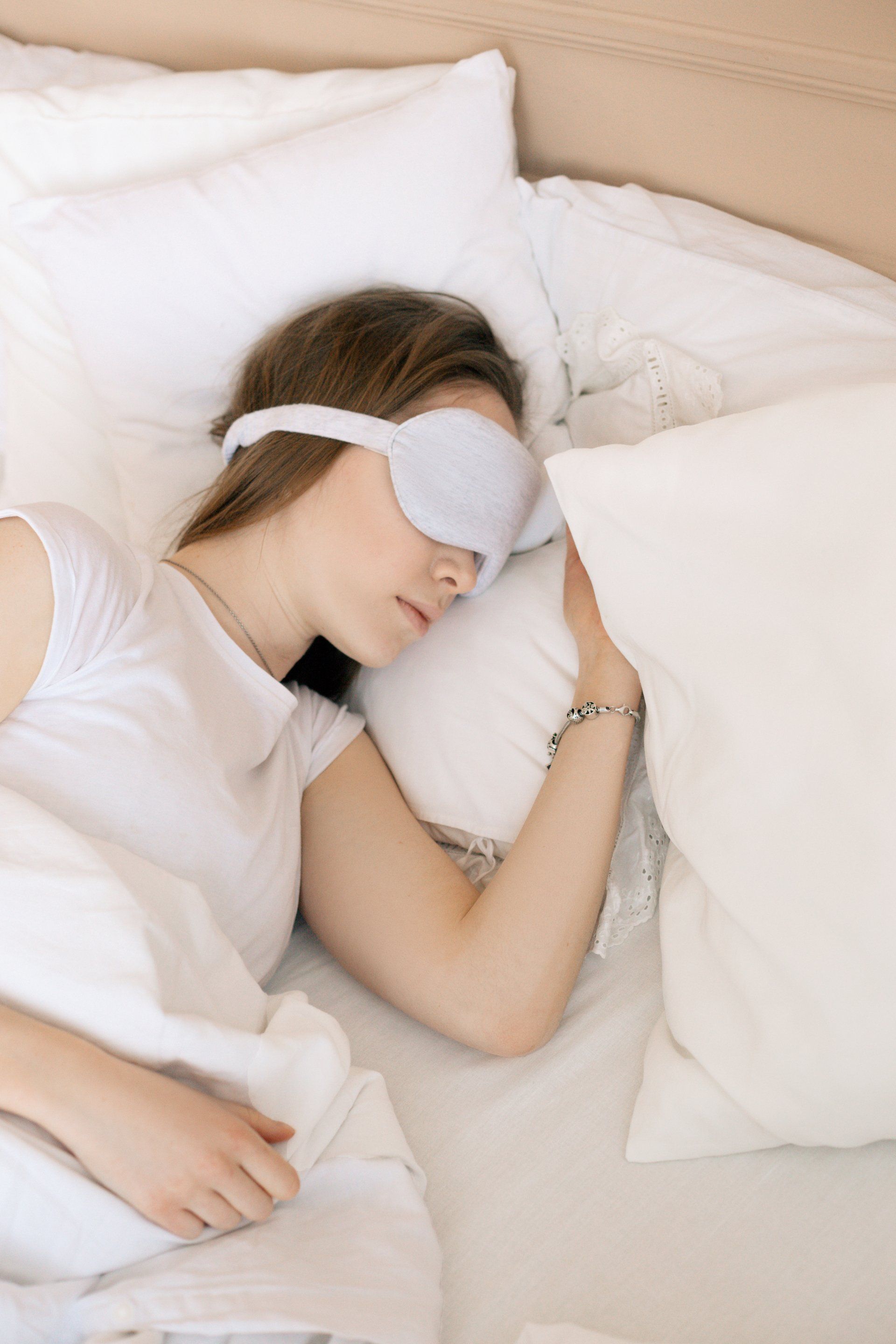
By Simone Sear
•
February 7, 2025
Good sleep is the foundation of physical health, emotional wellbeing, and cognitive function. Yet, for many, quality sleep feels out of reach. You may find yourself lying awake at night, waking frequently, or feeling unrefreshed no matter how many hours you’ve slept. Over time, this can take a real toll on your energy, mood, and overall health. If this sounds familiar, know that you’re not alone, and more importantly, that there are steps you can take to improve your sleep. What is quality sleep? Sleep isn’t just about duration; it’s about depth and consistency. Quality sleep means: • Falling asleep within 15–20 minutes of getting into bed. • Sleeping through the night with minimal waking. • Experiencing enough deep and REM sleep for restoration. • Waking up feeling refreshed and alert. When these elements are missing, sleep is less restorative, and you may find yourself struggling with fatigue, brain fog, or increased stress. The impact of poor sleep on your health. Lack of quality sleep affects every system in the body. In the short term, it can lead to: • Difficulty concentrating and reduced cognitive function. • Increased stress, irritability, and heightened emotional sensitivity. • A weakened immune system, making you more susceptible to illness. Over time, chronic sleep deprivation is linked to more serious health issues, including: • Increased risk of heart disease and high blood pressure. • Higher likelihood of developing anxiety and depression. • Disruptions to metabolism, leading to weight gain and blood sugar imbalances. Given how vital sleep is, prioritising it is one of the most effective things you can do for your overall wellbeing. Practical steps to improve sleep. If you’re struggling with sleep, making small but consistent changes can have a significant impact. 1. Establish a consistent sleep routine: Going to bed and waking up at the same time each day - yes, even on weekends - helps regulate your body’s internal clock, making it easier to fall asleep and wake up naturally. 2. Optimise your sleep environment: Your bedroom should be conducive to rest. Keep it cool (around 18°C is ideal), dark (blackout blinds or an eye mask can help), and quiet (consider white noise if needed). A comfortable mattress and pillow suited to your needs also make a significant difference. 3. Limit stimulants and late night screen time: Caffeine and alcohol can interfere with sleep quality, even if they don’t prevent you from falling asleep. Try limiting caffeine intake after lunchtime and avoiding alcohol close to bedtime. Likewise, the blue light from screens suppresses melatonin production, making it harder for your body to prepare for sleep. Aim to switch off screens at least an hour before bed. 4. Manage stress and overactive thoughts: An overactive mind is a common barrier to sleep. If you find yourself lying awake thinking, consider a short wind-down routine before bed. This might include reading, journaling, gentle stretching, or breathing exercises. Writing down any worries or to-do lists can also help clear your mind. 5. Consider magnesium and evening nutrition: Magnesium plays a key role in relaxation and sleep regulation. Including magnesium-rich foods (such as leafy greens, nuts, and seeds) or taking a supplement in the evening may help. Additionally, avoid heavy meals close to bedtime, as digestion can interfere with sleep quality. 6. Get up if you can’t sleep: If you’re lying awake for more than 20 minutes, it can be helpful to get out of bed and do something calming in dim lighting before trying again. This prevents your brain from associating bed with wakefulness and frustration. When to seek further support. If sleep difficulties persist despite making changes, it may be worth looking deeper. Underlying issues such as stress, anxiety, hormonal imbalances, or sleep disorders could be contributing factors. Seeking professional guidance can provide further insight and tailored support. For more help advice with sleep problems try the NHS Every Mind Matters resources or NHS advice pages on sleep and tiredness. If poor sleep is impacting your mental health and you need urgent support then contact NHS 111 for advice. Lastly......... Sleep is not a luxury, it’s essential to both physical and mental wellbeing. If you’re not getting the restorative sleep your body needs, small adjustments can make a significant difference. Start with one or two changes and build from there. Most importantly, be patient with yourself. Improving sleep takes time, but with consistency, you can regain the quality rest your body and mind need. If this resonates with you, what’s one change you can try tonight?
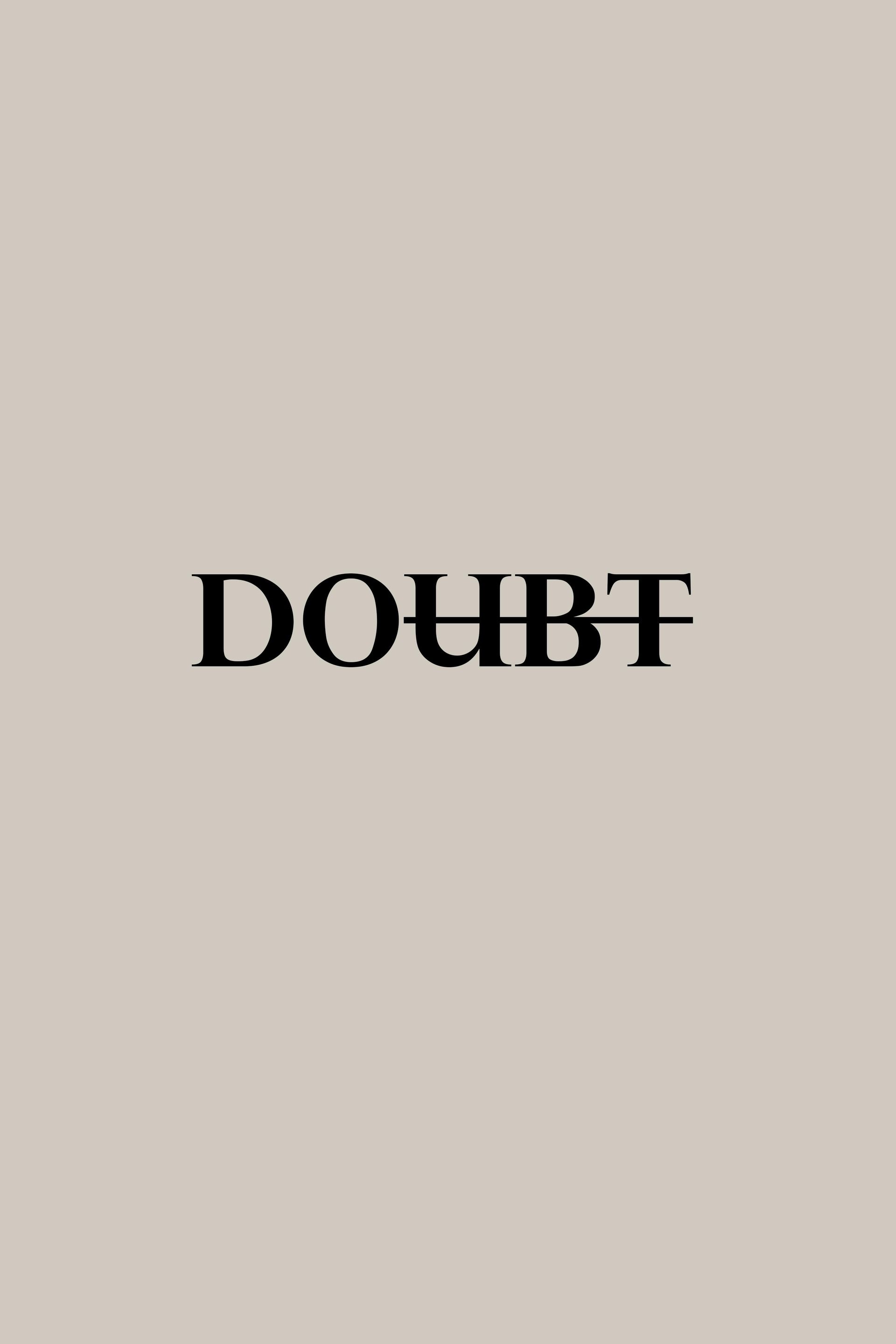
By Simone Sear
•
January 6, 2025
Reignite Your Motivation and Beat Procrastination While the start of a new year often brings promises of fresh goals and opportunities, it’s not uncommon to feel unmotivated or stuck in a procrastination rut. After the whirlwind of Christmas and New Year’s celebrations, finding your rhythm again can be challenging. If you’re struggling to take action, this blog provides some simple, effective strategies to rekindle your motivation and tackle procrastination head on, whatever the time of year. 1. Acknowledge and Reset The first step to moving forward is recognising how you feel. Post-holiday blues, fatigue, or overwhelm can leave you stuck in limbo. Instead of criticising yourself for feeling unmotivated: • Pause and reflect: Write down how you’re feeling and why. Understanding your current state can help you create a clear path forward. • Reframe the narrative: Instead of “I’ve already fallen behind,” try “I can start afresh today.” A reset doesn’t require perfection, just a willingness to take the first step. 2. Start Small, Think Big When motivation is low, big tasks can feel insurmountable. Break them into manageable steps: • Focus on micro-tasks: If “organise the house” feels overwhelming, start with “clean one drawer.” • Set daily intentions: Each morning, write down 1–3 small, achievable goals for the day. Completing these builds momentum. It’s the consistent small wins that will lead to big achievements over time. 3. Rekindle Your Why Motivation often wanes when we lose sight of why we’re doing something. Ask yourself: • What excites me about this task or goal? • How will I feel when it’s done? • How does it align with my values and long-term vision? For example, if your goal is to exercise, remind yourself that it’s not just about weight loss, it’s about feeling stronger, boosting energy, and improving your mood. 4. Create a Procrastination-Free Environment Your environment plays a key role in productivity. Set yourself up for success by: • Eliminating distractions : Put your phone on “Do Not Disturb” or work in a clutter-free space. • Using Time Blocks: Dedicate short, focused periods (e.g., 25 minutes) to work on a task, followed by a 5-minute break (the Pomodoro Technique). • Making it inviting: Play your favourite music, light a candle, or create a space you genuinely enjoy being in. 5. Be Kind to Yourself It’s easy to fall into a cycle of guilt and self-criticism when procrastination takes over. But self-compassion is far more effective: • Treat yourself like a friend: What would you say to a loved one struggling with motivation? Extend the same kindness to yourself. • Celebrate progress: Acknowledge each step forward, no matter how small. 6. Build Accountability Having someone to share your goals with can work wonders for motivation. • Share your goals: Tell a friend or family member what you’re working on and ask them to check in. • Join a group: Find a supportive community, whether online or in-person, to help keep you inspired. • Work with a coach: A coach can help you identify obstacles, build strategies, and provide ongoing support. 7. Reignite Energy With Self-Care Sometimes, a lack of motivation stems from burnout or fatigue. Prioritise self-care to recharge: • Get moving: Even a 10-minute walk can boost energy and focus. • Fuel your body : Eat nourishing meals to stabilise mood and energy levels. • Rest well: Aim for 7–9 hours of sleep to help reset your mind and body. 8. Embrace Imperfection and Start Anyway One of the biggest drivers of procrastination is perfectionism. We wait for the “perfect time” or expect flawless results before we even start. Instead: • Adopt the “good enough” mindset : Progress matters more than perfection. • Take action now : Motivation often follows action, not the other way around. Even a small step can build momentum. 9. Keep It Fun and Reward Yourself Finding joy in the process makes tasks feel less like chores. • Gamify your goals: Turn tasks into challenges or games (e.g., “How quickly can I clean this room?”). • Reward yourself: Celebrate milestones with something you love, like a favourite snack, a relaxing bath, or an episode of your favourite show. 10. Visualise Your Success Close your eyes and imagine yourself completing your tasks or achieving your goals. How does it feel? Visualisation helps reinforce positive emotions and inspires action. You’ve Got This Feeling unmotivated (especially after Christmas and at wintertime) is completely normal. Instead of letting it hold you back, use it as an opportunity to reconnect with yourself and your goals or intentions. Start small, be kind to yourself, and remember, progress is journey not a race. This year, take it one step at a time, and before you know it, you'll be moving forward with confidence. Here's to a motivated and fulfilling 2025! Are you ready to get started? If you'd like personalised guidance, support, or accountability, reach out for a health and wellbeing coaching session. Together, we'll create a plan that works for you! simone@simonesearcoach.co.uk

By Simone Sear
•
December 19, 2024
Putting Yourself First: How to Create Balance and Protect Your Wellbeing Do you ever feel like you’re constantly doing things for others but losing yourself in the process? This can be common at busy times like Christmas, but for many, it’s a year-round struggle. Over-giving, putting others first, and feeling guilty about taking time for yourself can leave you feeling drained, stressed, and emotionally exhausted. The good news? You don’t have to keep living this way. By recognising these patterns and learning to prioritise your own needs, you can create balance, protect your energy, and reclaim your sense of self. Are you over-giving? It can be good for our wellbeing to give something that benefits others. However, when giving turns to over-giving it can take a toll. Over-giving can show up in ways you might recognise: • Always prioritising others’ needs over your own. • Struggling to say ‘no’ without feeling guilty. • Feeling responsible for other people’s happiness or problems. • Sacrificing your own wellbeing to avoid conflict or keep the peace. While it’s natural to care about the people in your life, constantly putting yourself last can lead to stress, burnout, and resentment. Over time, it becomes harder to identify what you need and want because you’re so focused on everyone else. Why it’s time to break the cycle. Over-giving doesn’t just affect your emotional health, it can take a toll on your physical wellbeing and relationships, too. Constantly prioritising others can lead to: • Physical symptoms: Stress, fatigue, headaches, or even chronic illness. • Emotional exhaustion: Feeling anxious, overwhelmed, or burnt out. • Unbalanced relationships: Where one person is always giving and the other is always taking. Breaking free from this pattern allows you to: • Reconnect with your own needs and passions. • Build healthier, more balanced relationships. • Protect your energy and live a more fulfilling life. 5 steps to prioritise yourself: 1. Start with self-awareness The first step is recognising when you’re over-giving. Notice moments when you: • Say ‘yes’ to something you don’t have the energy for. • Feel responsible for solving someone else’s problems. • Ignore your own needs to keep someone else happy. Pause and ask yourself: What am I feeling right now? What do I need? 2. Set Boundaries. Boundaries are not selfish, they’re necessary for protecting your time, energy, and emotional health. Start small by saying ‘no’ to something that feels overwhelming or by carving out time in your day just for you. It might feel uncomfortable at first, but setting boundaries is an act of self-respect that teaches others how to treat you. 3. Let go of what you can’t control. You can care deeply about others without taking on their pain or trying to ‘fix’ their problems. Recognising what’s outside your control frees up your energy to focus on what you can change, your own choices and wellbeing. Ask yourself: Am I helping because I want to, or because I feel I have to? 4. Make self-care a priority. Self-care isn’t about being indulgent, it’s about meeting your basic emotional and physical needs. This might mean: • Getting enough rest. • Taking time for activities that recharge you. • Protecting your time and saying ‘no’ to things that drain you. Remind yourself: My needs matter just as much as everyone else’s. 5. Focus on balanced relationships. Healthy relationships are built on mutual respect and support, not one person doing all the giving. You don’t have to ‘fix’ anyone to be loved or valued. True connection comes from being your authentic self, not from sacrificing your needs to make someone else happy. This Christmas, give yourself the gift of balance. Christmas often brings extra pressure to do it all, make everyone happy, keep the peace, and say ‘yes’ to everything. But this year, if you recognise you’ve been over-giving, why not try something different? Start prioritising you. Set boundaries, honour your needs, and let go of the pressure to please everyone. Each step you take toward balance is a step toward living a more authentic, fulfilling life. If you’re ready to reclaim your energy and wellbeing, I can help. Health and Wellbeing Coaching offers the tools, support, and guidance you need to create the balance you deserve, not just over Christmas, but every day. Contact me to learn more and start your journey: simone@simonesearcoach.co.uk
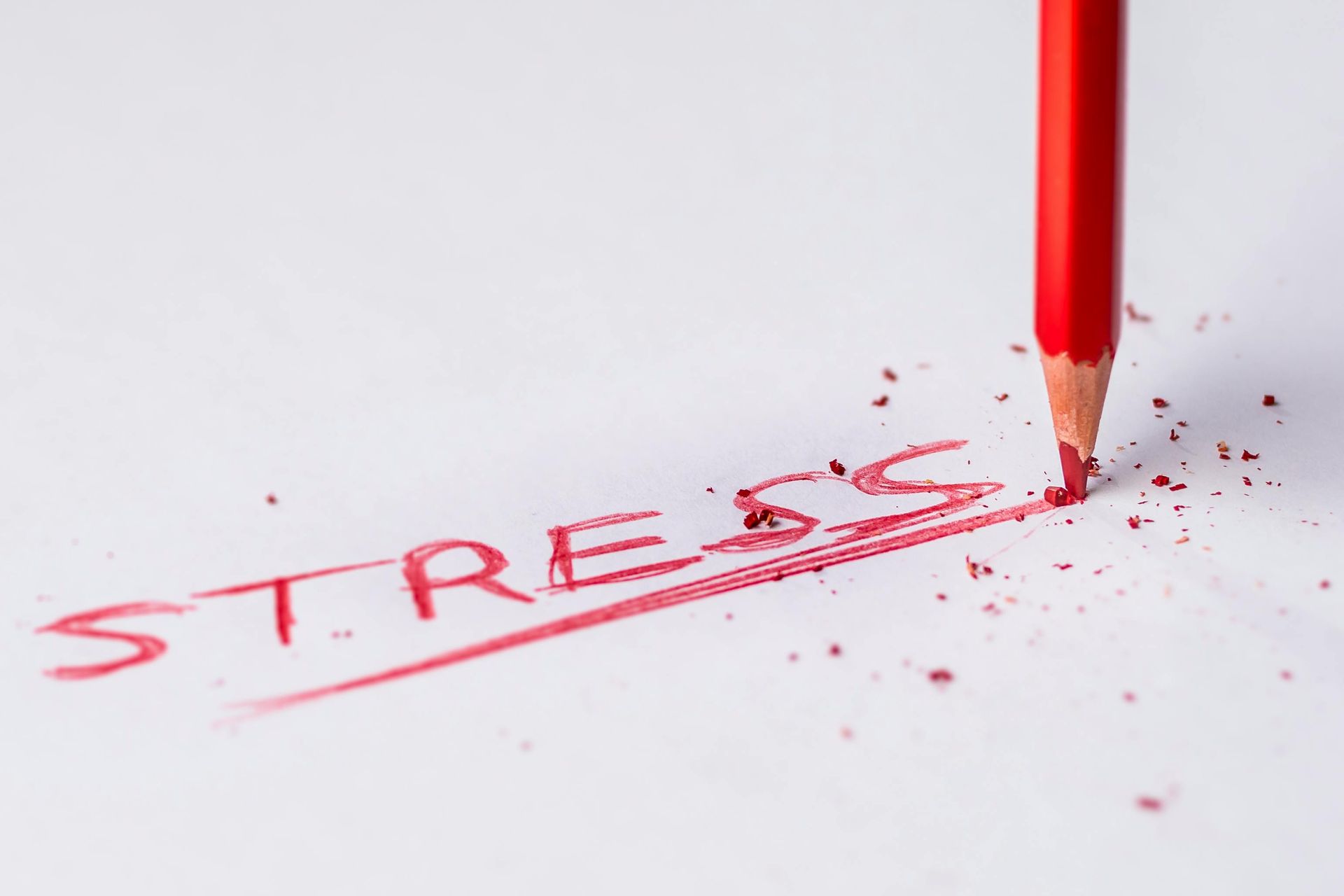
By Simone Sear
•
December 5, 2024
Stress Eating: Understanding It and Taking Back Control Let’s be honest, stress eating is something so many of us deal with. I know, because I’ve been there. I’ve eaten my emotions more times than I can count, when I’ve been happy, sad, angry, stressed, or even just bored. For years, food has been my go-to response to life’s challenges and celebrations alike. It feels comforting in the moment, but afterward? Yes, I feel guilty, frustrated, and even more stressed. If this sounds familiar, I want you to know that you’re not alone, and you’re not broken. Stress eating isn’t about a lack of willpower. It’s simply your body and mind doing their best to cope with overwhelming emotions. The good news? You can break free from this cycle and build a healthier relationship with food, and with yourself. Why Do We Stress Eat? When we’re stressed, our bodies release cortisol, a hormone that makes us crave quick energy in the form of sugary, salty, or fatty foods. It’s biology, not weakness. But stress eating is about more than just hormones. Often, food becomes a comfort, a distraction, or even a habit ingrained over time. For me, it was all of the above. I’d reach for chocolate after a hard day at work or snack mindlessly when feeling overwhelmed. Sometimes, I’ve eaten even when I’m not hungry, just to feel something different. Over time, I’ve realised this isn’t about the food, it’s about the emotions I’m trying to avoid or soothe. How to Break the Stress Eating Cycle: I know first hand that breaking free from stress eating is easier said than done. But it’s absolutely possible. Here are some steps that help me and might help you too: 1. Pause and Get Curious: Before you reach for that snack, take a deep breath and ask yourself; • Am I actually hungry? • What am I feeling right now? This isn’t about judging yourself, it’s about awareness. Sometimes, just pausing is enough to shift the urge. 2. Create an Emotional Toolkit: Food isn’t the only way to handle emotions, even though it might feel like it in the moment. Instead, try building a toolkit of other coping strategies. Some things that work for me include: • Writing down how I’m feeling (even if it’s messy). • Going for a walk to clear my head. • Practicing deep breathing or meditation . • Talking to someone I trust. Having these alternatives ready can make all the difference when the urge strikes. 3. Eat Mindfully: When you do eat, whether it’s because you’re hungry or just because - try to slow down. Sit down at a table, focus on the food, and enjoy it without distractions. Mindfulness practice can help you feel more satisfied and in control. 4. Be Kind to Yourself: This is a big one. Stress eating doesn’t make you a failure or a bad person, it makes you human. Progress isn’t about being perfect; it’s about learning from each moment and treating yourself with compassion and kindness. 5. Focus on What You Can Control: You can’t always eliminate stress, but you can change how you respond to it. For me, this has meant learning to set boundaries , prioritising rest, and finding healthy outlets for my emotions. It’s not about doing everything at once, it’s about taking one step at a time. You're Not Alone in This: If you’re reading this and nodding along, I want you to know that I get it. I’ve been there, and I know how overwhelming it can feel. But I also know how freeing it is to take back control, not just over food, but over your emotions and your wellbeing. As a health and wellbeing coach , I’m here to help you do just that. Together, we’ll dig into the root causes of your stress eating, create a personalised plan that works for you, and build habits that feel good and sustainable. Let’s Do This Together If you’re ready to take the first step, I’d love to hear from you. Book a free consultation with me, and let’s chat about how I can support you on this journey. Because you deserve to feel in control, confident, and at peace, not just with food, but with yourself. You’ve got this and I’m here to help. Reach out for a free 30 minute discovery call: simone@simonesearcoach.co.uk

By Simone Sear
•
November 25, 2024
Wellbeing in Demanding Circumstances: Practical Strategies for Relentless Lives Rest, recharge, self-care—these are all great recommendations for improving health and wellbeing. But what if your life and/or your occupation doesn’t allow for breaks or much downtime? It’s something I hear a lot given our lifestyles can often feel packed full of relentless demands. So what can you do if that’s the case? Whether you’re juggling a demanding job, caring responsibilities, or both, prioritising yourself can feel impossible. Yet, even in relentless and demanding circumstances, there are ways to protect and nurture your wellbeing. Here’s how you can take small but impactful steps to maintain your health and wellbeing without adding to your load. 1. Find small moments for care: If your daily schedule is packed out, try to focus on micro-moments. A few minutes of deep breathing, stretching, or stepping outside can help. While working, commuting or caring, try listening to something uplifting or calming. These small moments will all add up. 2. Set boundaries where you can: Not everything is urgent (even if it might seem like it is). Learn to say no to tasks or commitments that don’t align with your priorities. If you’re overwhelmed, try and let others know. Sharing your constraints may lead to support you didn’t expect. 3. Maximise sleep and nutrition: If long, restful nights aren’t possible, focus on the quality of your sleep. Try using blackout curtains, avoid screens before bed, and create a calming bedtime routine. For nutrition, simplify the things. Keep healthy snacks on hand and batch-cook meals when you can. 4. Ask for help: Caring for others doesn’t mean you can’t ask for care yourself. Reach out to friends, family, or for community resources. If help isn’t easily available, look out for online or local support groups. 5. Make movement work for you: You don’t need hours spent at the gym. Try short, doable workouts like 10-minute yoga stretches, a short walk or a few minutes of bodyweight exercises. Even small movements, like taking the stairs or stretching while waiting, can all make a difference. 6. Adjust your expectations: Perfection isn’t the goal. Celebrate small wins, like drinking more water or taking a 5-minute break. These steps, though small, are meaningful. 7. Lean on what matters: When life feels overwhelming, reconnect with your purpose. Whether it’s the meaning behind your work or the care you’re providing, remembering the “why” can help you push through tough moments. 8. Simplify where you can: Streamline repetitive tasks by using technology, checklists, or routines. If possible, negotiate flexibility in your schedule to make space for rest. 9. Support yourself while supporting others: If you’re a caregiver, find people who understand. Peer groups and caregiving organisations can provide advice, encouragement, and solidarity. Also, make space for small joys, a favourite drink, a good book, or a moment of quiet can refresh you. 10. Stay grounded in the chaos: Stress can be managed, even when circumstances are intense. Grounding techniques, like noticing five things you can see or touch, can calm your mind. Build small rituals into your day; morning tea, evening journaling, or even a deep breath before starting a task. Focus on progress, not perfection: Caring for yourself in a demanding life isn’t about grand gestures. It’s about integrating small, sustainable actions into your day. These steps, though simple, can protect your health, boost your energy, and help you show up for the people and responsibilities that matter most. When life feels relentless, remember: small changes create lasting impact. Start where you are, use what you have, and take it one step at a time. Find out more about personalised health and wellbeing coaching and how it can help you lighten the load and thrive. Contact me for a free discovery call: simone@simonesearcoach.co.uk
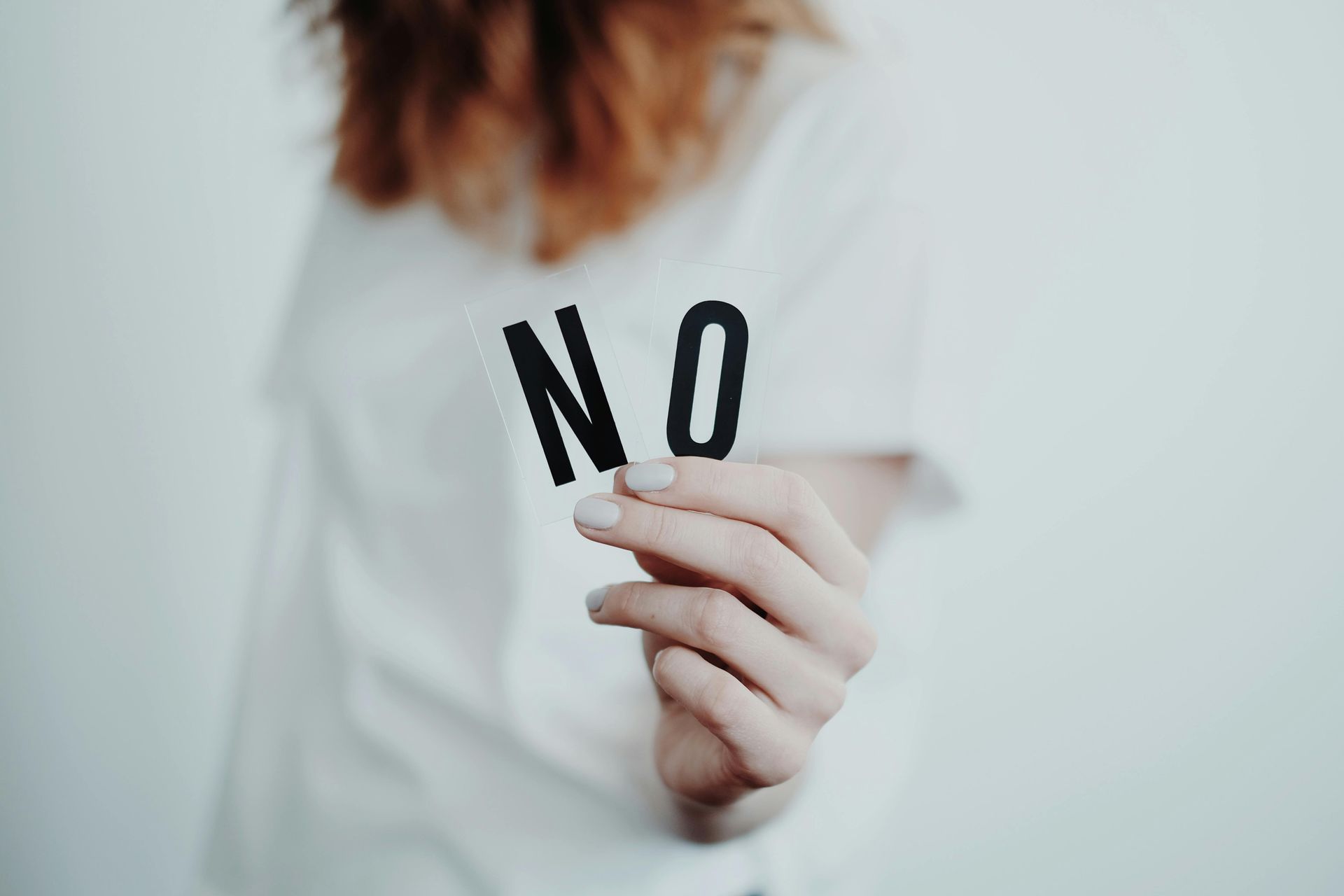
By Simone Sear
•
November 4, 2024
Building Better Boundaries: A Path to Happiness, Health and Wellbeing. In a society that often rewards us for saying “yes”, setting boundaries can feel daunting, especially if you’re a people pleaser. Yet boundaries are essential for our mental, emotional, and physical health. Learning to set boundaries isn’t about pushing people away; it’s about building a sustainable way to show up for others without losing ourselves in the process. In this blog, I explore what boundaries are, why they’re so important, and how to set them in a way that supports your well-being, particularly if you’re used to putting others first. What are boundaries? Boundaries are guidelines that define what you’re willing to accept and what you’re not. Think of boundaries as an invisible fence that surrounds your personal time, emotions, energy, and physical space. They help you to protect your wellbeing while maintaining positive relationships. Different types of boundaries: 1. Emotional Boundaries - Limit how much emotional support or vulnerability you share with others. 2. Time Boundaries - Decide how much of your time you’re willing to give to others versus yourself. 3. Physical Boundaries - Define your comfort with personal space and physical touch. 4. Mental Boundaries - Uphold your right to your beliefs, values, and opinions, even if they differ from others. 5. Material Boundaries - Set limits around what you share or lend, whether it’s money, belongings, or resources. Each type of boundary helps you build a fuller, healthier life by giving you more control over where your energy goes. Why boundaries are so important for health and wellbeing. Boundaries are more than just protective measures, they’re tools for growth and connection. They provide a structure that allows you to be present and authentic in your relationships, without overextending yourself. Here are a few reasons why they’re essential: • Protects your mental and emotional health : When you know and communicate your limits, it reduces the risk of burnout and emotional exhaustion. • Enhances self-respect and self-worth : Setting boundaries is a way of honouring your own needs, reminding yourself and others that your wellbeing matters. • Improves relationships : Boundaries clarify expectations, which can reduce misunderstandings and foster respect. They help us show up in our relationships as our best selves rather than as resentful or drained versions. • Reduces stress and anxiety : Clear boundaries create predictability and control in situations, which can significantly lower stress levels. • Encourages personal growth : By defining your boundaries, you become more aware of your own needs, values, and limits, leading to greater self-knowledge and personal development. Top tips for setting boundaries. Setting boundaries can feel uncomfortable, but with some practice, you can learn to set boundaries without fear, guilt, or the need to justify yourself. 1. Start small and get comfortable with saying “No”: Start by setting small, manageable boundaries first. For example, if a friend asks for a favour that would inconvenience you, practice politely declining without over-explaining. Saying “no” without guilt is a powerful step toward better boundaries. For example: “ Thank you for thinking of me, but I won’t be able to help with that this time. ” 2. Listen to your body’s signals : Our bodies are often the first to let us know when a boundary has been crossed. Pay attention to signs of discomfort, tension in your stomach, stress headaches, or fatigue can all be indicators that you’re overextended. Notice these signals, and take them as cues to set a boundary. 3. Communicate boundaries with clarity and kindness: Boundaries don’t have to be harsh. In fact, clear but kind communication is often the most effective way to set them. Use “I” statements to express your needs without blaming others. For example: “ I need some quiet time to recharge after work, so I’ll be turning off my phone for a couple of hours each evening.” 4. Accept that some discomfort is normal: You might worry about disappointing others, but remember that setting boundaries is not about rejection. Some initial discomfort is natural, but each time you honour your boundaries, you reinforce your self-respect and independence. In the long run, people who care about you will understand and respect your limits. 5. Reframe your thinking: Boundaries are an act of self-care, not selfishness : It’s common to feel guilty when setting boundaries. Remind yourself that boundaries allow you to recharge and bring your best self to your relationships. You can’t pour from an empty cup, and boundaries help keep that cup full. 6. Make a list of your core values and needs : Identify what matters most to you, both in your relationships and your personal life. Are you trying to protect your family time? Guard your mental energy? Spend more time on your hobbies? Being clear about your values makes it easier to know where and why to set boundaries. 7. Remember that you’re not responsible for others’ reactions: When you set a boundary, others may feel disappointed, frustrated, or even surprised. But remember, you’re not responsible for their reactions. Your responsibility is to your own wellbeing and to communicate your boundaries respectfully. Moving forward: Creating a boundary-friendly life. Creating a life with healthier boundaries doesn’t happen overnight, it’s a practice of checking in with yourself, identifying what you need, and communicating it calmly and consistently. Over time, setting boundaries will start to feel empowering rather than uncomfortable, and you’ll find yourself more energised, present, and fulfilled. Boundaries are a gift you give to yourself and to others; they allow you to be your most authentic, balanced self in every relationship. Every time you set a boundary, you’re taking a step toward a healthier, happier you. Setting boundaries might be a challenge, but it’s a challenge worth taking. By honouring your own needs, you set a powerful example for those around you and create a life that’s more closely aligned with who you are. Ready to set boundaries that protect you wellbeing? Let’s work together to build the balanced and fulfilling life you deserve. Contact me for a free discovery call to find out more about health and wellbeing coaching: simone@simonesearcoach.co.uk

By Simone Sear
•
October 31, 2024
The Exhaustion Funnel: How to Spot It and Stop It Before Burnout Today I’m talking about exhaustion. Many of us try to push through stress, thinking if we just work a little harder, everything will fall into place. But that approach often leads us straight into the exhaustion funnel, a slow, steady decline into burnout. We shouldn’t be living like that, and it’s important to recognise the signs early so we can stop the slide. What is the Exhaustion Funnel? The exhaustion funnel is a concept used to describe the gradual process by which people become increasingly overworked, stressed, and ultimately exhausted, often leading to burnout. It was first introduced by psychologist Marie Åsberg to explain how people, particularly those under chronic stress or pressure, end up sacrificing important aspects of their lives in a bid to keep up with demands, only to spiral down into exhaustion. The exhaustion funnel happens when, in response to stress, we start cutting out things that keep us grounded and happy. You skip social plans, drop hobbies, and push aside downtime, thinking you’re “managing” your workload. But as you cut more and more, life narrows to nothing but obligations and fatigue. Before you know it, you’re at the bottom of the funnel; burned out and disconnected. Are You in the Funnel? Here are some signs to watch for: • You’re neglecting what you love: If you’ve stopped doing things that bring you joy, you’re losing the balance that keeps stress in check. • Everything feels like a task: If activities you used to enjoy now feel like obligations, it’s a sign you’re running on empty. • You’re always tired: No amount of sleep seems to fix the exhaustion, because it’s mental and emotional, not just physical. • You’re pulling away from others: If you’re isolating yourself, cancelling plans, or avoiding people, that’s another sign you’re too overwhelmed. • You feel stuck: If every day feels like you’re just ticking boxes, it’s time to rethink how you’re spending your energy. How to Break the Cycle It’s possible to stop the exhaustion funnel before you hit burnout. Here’s how: 1. Put yourself back on the priority list: Self-care isn’t an afterthought. If you don’t take care of yourself, everything else will fall apart. Make time for what restores you, whether it’s a walk, reading, or simply doing nothing. This isn’t indulgent; it’s essential. 2. Say yes to joyful activities: You can’t afford to cut out the things that bring you joy. These are what keep you balanced. Whether it’s meeting up with friends, doing something creative, or just laughing, make time for it. Joy is part of a healthy life. 3. Set boundaries and stick to them: You don’t have to say yes to everything. In fact, you shouldn’t. Overcommitting leads straight to burnout. Learn to protect your time and energy by saying no to what drains you. 4. Schedule rest: Rest doesn’t happen by accident. It has to be intentional. Build downtime into your routine. This might mean taking a proper break at weekends or scheduling an hour each day to unplug. Without rest, burnout is inevitable. 5. Reconnect with your support system: Burnout isolates us, but the way out is through connection. Reach out to people who support you. Talking through stress, laughing, and spending time with others can recharge your emotional batteries. 6. Regularly check in with yourself: Stop every now and then and ask, How am I feeling? This isn’t just about managing stress, but about being honest with yourself. If you’re feeling drained or overwhelmed, it’s time to pause and adjust. Take action now: Burnout from exhaustion isn’t inevitable. You don’t need to keep pushing until there’s nothing left. Recognise the signs early and take steps to reclaim your energy before hitting the bottom of the funnel. This isn’t about doing more, it’s about making the right choices for your wellbeing. If you need guidance on how to make these changes, reach out. As a health and wellbeing coach, I’m here to help you create a balanced, sustainable life (without burnout). simone@simonesearcoach.co.uk

By Simone Sear
•
October 18, 2024
World Menopause Day 2024: Navigating Menopause and Accessing Support Menopause is a significant transition in a woman’s life, yet for many of us, it feels like something we’re expected to endure in silence. Growing up, I believed menopause was simply something women had to “put up and shut up” about, a part of life that we were supposed to tough out on our own. When I started going through menopause, that mindset stayed with me. I found it incredibly difficult to ask for help. Even when I did, I didn’t know what to ask for or where to begin. It was a confusing, overwhelming time that left me feeling lost and isolated. What is Menopause? Menopause is a natural phase that typically occurs between the ages of 45 and 55. It marks the end of a woman’s reproductive years and is officially diagnosed when a woman hasn’t had a period for 12 consecutive months. However, the transition can begin years earlier during perimenopause, when hormone levels start to fluctuate. For some women, menopause can begin early before the age of 45 with the onset of health conditions, surgery and/or treatment. For many women, menopause brings a wide range of symptoms caused by the drop in estrogen and progesterone. These symptoms can affect every part of life, from physical health to emotional wellbeing to cognitive function. Common menopause symptoms include: • Hot flashes and night sweats • Sleep disturbances and insomnia • Mood swings, irritability, or feelings of depression • Brain fog or difficulty concentrating • Vaginal dryness and discomfort • Weight gain and changes in body shape The list is not exhaustive as there are many more known menopause symptoms. For some, these symptoms are mild and manageable, but for others, they can be debilitating. In fact, 3 in 4 women experience symptoms, and 70% say these symptoms cause significant stress. The Struggle to Find Support Even though menopause affects millions of women, many of us find it difficult to get the support we need. I know first hand how challenging it can be to navigate this phase, especially when access to information and treatment options feels so limited. I wasn’t sure what help I needed or how to ask for it. And when I did start exploring treatments, I was met with basic advice that didn’t fully address my symptoms or concerns. Like many women, I chose to start Hormone Replacement Therapy (HRT), which was life-changing for me. It helped ease my symptoms and gave me a sense of control over my body again. But even then, the journey wasn’t straightforward. During the HRT shortages, I faced setbacks that left me scrambling for alternatives, finding none I was forced to stop medication and went ‘cold turkey’. When symptoms returned I began taking HRT again but then just as symptoms eased, I had to stop suddenly again due to surgery, I felt like I was back at square one. It was frustrating and a bit of rollercoaster. In those moments, I realised that I had to become my own advocate. I had to learn about my options, research treatments, and push for the care I needed. I used resources like the Balance app to track my symptoms and found workplace training on menopause incredibly helpful. But despite these tools and increased awareness, it often felt like I was navigating this journey alone. The Wider Impact of Menopause Menopause doesn’t just affect the woman going through it. It has a ripple effect that touches families, workplaces, and communities. In the workplace, for example, many women find it difficult to manage symptoms like hot flashes, brain fog, or fatigue while trying to maintain their productivity. It’s no surprise that 1 in 10 women end up leaving their jobs due to menopause-related issues, and 35% take time off to cope with their symptoms. This loss of talent has significant implications, not only for the women involved but also for businesses. These are women who are often at the peak of their careers, with years of experience and expertise. When they’re unsupported, companies miss out on retaining invaluable talent. Fortunately, there is growing recognition that workplaces need to do more to support women during this time. The Equality and Human Rights Commission has published guidance to help employers understand their responsibilities, encouraging them to provide resources and create environments that allow women to thrive during menopause. You Don’t Have to “Tough It Out” Alone One of the most important lessons I’ve learned is that menopause doesn’t have to be something we “tough out” alone. There are options, treatments, and support available, but too often, women don’t know what’s out there or feel too overwhelmed or even embarrassed to ask. Whether it’s exploring HRT, making lifestyle changes, or simply talking to someone who understands what you’re going through, it’s crucial to seek the help that feels right for you. There’s no one-size-fits-all approach to managing menopause, and that’s okay. What’s important is finding what works for you and knowing that you don’t have to navigate this journey in silence. If you’re struggling with symptoms or unsure of where to turn, don’t hesitate to reach out, whether that’s to your GP, another healthcare professional, your workplace, or even a trusted friend. World Menopause Day is a reminder that you don’t have to go through this alone, and it’s never too late to ask for the support you deserve. Menopause is a natural part of life, but it’s not something we should have to endure in silence without help. The more we open up about our experiences and advocate for ourselves, the more we can break down the stigma surrounding menopause and ensure that every woman has access to the care and support she needs. Here's a few links to information that I found useful: NHS information about menopause. World Menopause Day Information and Resources at The International Menopause Society . Information and educational resources from the #MakeMenopauseMatter campaign by Menopause Support.
